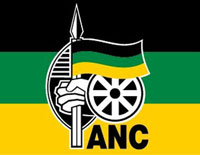
(FinalCall.com) – An interesting development in post apartheid South Africa is current African National Congress internal political squabbling, including Youth League leader Julius Malema, and questions about whether discussion of the infighting creates a cover for more serious economic issues.
It has also been charged that the “family squabble” may have lessened ANC credibility and party leaders have been accused of a willingness to circumvent the law to serve their personal interests. Take for instance President Thabo Mbeki being forced out of office by the ANC he once controlled. He was pushed out of office to the disapproval of current President Jacob Zuma who at the time said let Mr. Mbeki live out his presidency and hold onto his dignity. But disgruntled members who President Mbeki had enraged with only a few months remaining on his term said no.

Words attributed to Winnie Madikizela-Mandela, which had her criticizing former husband Nelson Mandela in the London Evening Standard, have also had an impact–though Ms. Mandela denies the interview occurred. The Christian Science Monitor, however, reported Ms. Mandela still has much support and there are Blacks who are unhappy with South Africa’s elder statesman. According to the Christian Science Monitor, “casual conversations with black South Africans of all economic levels reveal … bitter disappointment with Nelson Mandela.”
Is there reason for the disappointment? Some say coming out of jail Nelson Mandela was a nationalist, but by the time he became president he insisted the ANC had been “cleansed” of this sort of ideology–an obvious response to being schooled on the reality of the new global economy. The ANC’s new market economy commitment even was given the appearance of a payoff: Five months before the ANC came into power it signed a letter “of intent with the IMF (International Monetary Fund) committing itself as the future government to a program of fiscal austerity in return for an $850 million loan.”
Did the ANC capitulate, did it submit to market realities at the expense of the people who fought, died and suffered during the liberation struggle? Or was the ANC faced with a dilemma to either stand up to market forces, try and create a kind of stimulus program for the people, and face the wrath of the Whites who controlled the economy, and who Mandela felt were needed allies?
The ANC Department of Economic Policy received its training at Goldman Sachs in New York and developed a policy relying on the conventional wisdoms of the IMF and World Bank “emphasizing” according to former South African President Thabo Mbeki’s biography, A Legacy of Liberation, “a limited state and the encouragement of private sector growth.”
Then there is ANC Youth League leader Julius Malema, whose call to nationalize the country’s mining industry may have sounded like a nationalist of old–but with all the deal making its hard to make heads or tails of it.
The Youth League leader that has been touted by many, including President Zuma, as a possible future presidential candidate, and has received “weeks of media scrutiny” resulting in a stream of “unflattering front-page stories.” Questions were raised about how his meager official monthly salary of $2,700 could pay for his $34,000 Breitling watch, two expensive homes and a Mercedes-Benz C6 3.
His nationalism campaign, according to one newspaper, which “made international investors uneasy, is also believed to be a way of putting pressure on Sinosteel one of the largest trading companies in China to relinquish its majority” interest in ASA Metals.
Despite questions about Malema’s financial dealings, his support among South African youth is unblemished. Not only did thousands show up at his recent birthday bash, but they embrace his willingness to criticize even President Zuma on the status South African youth.
During a recent interview, Malema was asked about his verbal attack on Finance Minister Pravin Gorhan for under-resourcing the National Youth Development Agency. Didn’t he realize that President Zuma said attacking the finance minister was also an attack on the president–the man that could be considered Malema’s mentor? Without missing a beat the youth leader said, “(The president) is right, but this does not stop us from raising issues.”
“Seventy-five percent of the unemployed in the country are young people,” Malema said, suggesting the unemployment was a ticking political time bomb. President Zuma in his State of the Nation speech dedicated (a lot of his time) to youth development, he noted. “The budgeting should have been in line with what the president said,” argued Malema.
And though Malema said he accepted criticism from the president and maybe his concerns should have been raised “internally,” the ANC youth leader “stands firm” and “more pressure” needs to be put “on Gordhan to accept that we have a problem.”
Next week: President Jacob Zuma, the land question, and is media scrutiny of the ANC really aimed at covering White control of the economy?












